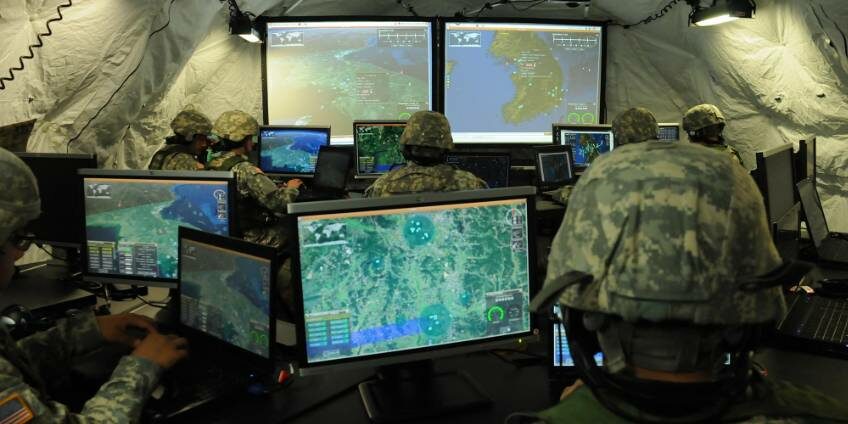Integrated Battle Command System (IBCS): Advancing Modern Military Defense
The Integrated Battle Command System (IBCS) is a cutting-edge development in military defense technology, aimed at revolutionizing the coordination and effectiveness of air and missile defense operations. By integrating a wide array of sensors, radar systems, and weapon platforms into a unified network, IBCS enhances situational awareness and decision-making capabilities, ensuring that the right assets are deployed swiftly and accurately in response to emerging threats.
At the heart of IBCS is its ability to facilitate seamless communication and data exchange across diverse defense platforms. This network-centric approach allows real-time data sharing between ground units, aircraft, naval vessels, and missile defense systems, providing a comprehensive understanding of the operational environment. Enhanced situational awareness leads to more coordinated and effective responses, significantly improving the overall defense posture. The IBCS leverages advanced sensors, radar systems, and analytics to achieve unparalleled accuracy in detecting, tracking, and engaging threats. Machine learning algorithms and real-time data processing enable precise targeting, crucial for neutralizing dynamic and elusive threats. This precision reduces the risk of collateral damage and increases mission success rates, enhancing the safety and effectiveness of military operations.
Designed with a focus on interoperability, IBCS supports joint and coalition operations, ensuring compatibility with a wide range of systems and platforms. This capability allows allied forces to collaborate effectively, share critical information, and execute coordinated defense strategies, thereby improving the overall efficacy of joint military engagements. The integration of various air and missile defense elements within IBCS leads to improved synchronization, resulting in more effective and efficient operations. Robust cybersecurity measures and redundant systems are integral to IBCS, ensuring continuous operation even in contested or degraded environments. This resilience is vital for maintaining operational capabilities amidst cyber threats, electronic warfare, and other challenges. By safeguarding the network and ensuring reliable performance, IBCS maintains a high level of readiness and reliability.
The adaptability of IBCS provides commanders with greater flexibility in planning and executing defense missions. This flexibility is crucial for responding to the dynamic nature of modern warfare, where threats can emerge from multiple directions and domains. The system’s real-time data and intelligence-sharing capabilities significantly enhance situational awareness, enabling better decision-making and quicker responses to threats. The IBCS is employed in various military operations, each benefiting from its advanced capabilities. In air and missile defense, IBCS coordinates the detection and engagement of aerial threats, ensuring timely and accurate responses. For ground-based operations, the system integrates with artillery and missile units, providing precise targeting information and enhancing the effectiveness of defensive measures.
IBCS is an evolving system, with ongoing research and development focused on incorporating emerging technologies. Future enhancements aim to integrate artificial intelligence, advanced sensor networks, and enhanced data analytics to further improve the speed, accuracy, and effectiveness of defense operations. These advancements will ensure that IBCS remains at the forefront of modern military capabilities, adapting to new challenges and threats in an ever-changing battlefield.

